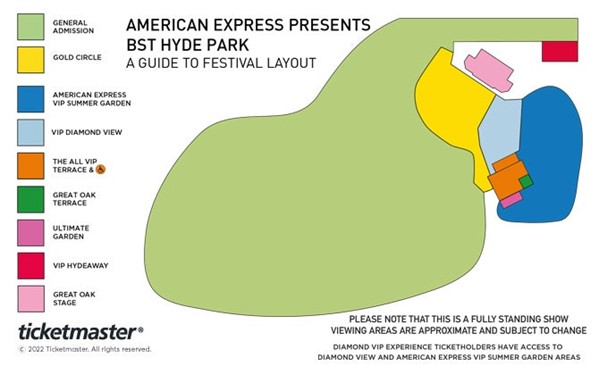From citizen to consumer: the growing corporatisation of public space

The growing corporatisation of public space: From public good, to public as consumer.
Parks and public spaces are increasingly being used and situated as revenue generators whilst the public who uses them have become reimagined as consumer in these environments. Moreover, what we have witnessed over the last 20 years but increasingly so is the use of parks and other public spaces is an ideological shift in how we imagine the purpose of these vital resources, away from free to use locations for public good and well being to highly monetised income streams.
This is not happening within in some sort of abstract and coincidental manner, it is situated and indeed mirrors the insidious and creeping privatisation of our lives and the very spaces we inhabit. The increasing commercialisation of public spaces, which of course restricts free enjoyment (their original purpose and function) is located within a wider narrative and ideological dominance where public good is supplanted by privatised individualism.

This is also situated alongside projects of urban regeneration which have often spelt further intensified marginalisation of the urban poor, pushed away from city centres and relocated in the periphery. The dominant sociopolitical model of neoliberalism has given an impetus to these processes which has resulted in both the emergence of middle class gated communities but also class based exclusivity of prohibitively expensive events within public spaces whose interests are protected and forwarded by the state and supported by firmly established ideological discourses.
The brutal reality is that local councils and city authorities are increasingly pressurised to provide revenue streams and to monetise any available assets. This is firmly within the context of withering and continued cuts to public services and central government funding. Often using public spaces for commercial events is the only means for councils to make up for shortfalls in funds. However, the wider and more pressing point is that neoliberal dominance which has repositioned ideas around purpose, place and provision by government over the last 40 years or so has become so ingrained unquestioned, that it has been able to completely reconfigure how we view our urban environments and what we view as normal and acceptable. Moreover, this also operates within an increasingly divided and unequal public sphere where exclusivity is championed and co-operation and communal good is sidelined.

What we have witnessed is an assault on the accessibility and democratic utility of public space over recent years. From the huge increase in gated communities and the restrictive use of public areas, public parks, city squares, gardens, plazas and even streets are not immune to the privatisation and public-as-consumer mantra of contemporary neoliberalism. Indeed, Brighton’s recently remodelled and refurbished Valleys Gardens and Grand Parade (cost to public- £7.8m) being a prime example. Throughout the summer residents wanting to enjoy or access these spaces will have to contend with a multitude of exclusive and commercial events such as; Brighton Open Air Theatre, Brighton Fringe, Lady Boys of Bangkok let alone Brighton’s Preston Park which hosts the all fee paying events such as ‘Foodies Festival’, ‘Pride’ and ‘Pub in the Park’.
Increasingly public spaces have become locations of packed entertainment scheduling. Hyde park in London being a prime example of vital public space remodelled as an exclusive and prohibitively expensive consumer commodity. Their summer schedule includes a variety of exclusive and costly events such as; Bat Walk, LTA Youth Tennis Courses, ‘Hidden Stories of Hyde Park’, Swim Serpentine, Royal Parks Half Marathon and most notably the 10 day American Express Presents BST Hyde Park music extravaganza which consists of turning Hyde Park into Londons largest (and most expensive) outdoor open-air music venue.
However it is not just limited to the summer, most cities now use their public squares in the winter for open air ice-skating rinks and not to mention the perennial faux-German Christmas markets. There is no limit to the commercialisation of public space and parks in particular, for example a Tough Mudder commercial event in Finsbury Park in mid-April drew huge local criticism. Local Labour MP for nearby Tottenham, David Lammy tweeted that he had been to the park and was “utterly appalled”, he also commented that “Finsbury Park is an inner city urban park and the damage done is an environmental disgrace”, he also said that “there are serious questions about how and why this license was granted, enforced and policed” (BBC News, 2023). Again, the point not necessarily being the damage and disregard to vital public spaces these events can cause (and often do), but the assumed and accepted narrative that this is the purpose of these spaces.

Policies and practices to ameliorate this renegotiation of public space would be the relatively easy part. For example introducing strict curbs on the number of days events can be held in each public area such as a specific park; strict regulations, penalties and fines for any damage or distress caused to public spaces; local consultation for proposed events; and of course greater government funding to local councils and authorities to deter the reliance upon an increased commercialisation of public space.
However, the most important point is that we must directly challenge and reject the neoliberal agenda that has permeated our understanding of use and utility of public spaces. That first and foremost the very purpose of public spaces like parks, gardens and squares is to provide free to use, open and accessible spaces for public good and well being, not as sites of commercial gain and profit that often excludes the very population these spaces are meant to serve. This is a big challenge as it requires us to rethink and reject the neoliberal agenda that has become so dominant not only within the realm of public space but throughout the wider social, cultural and political context.
I am not necessarily arguing against the diversified use of public space for fun events and entertainment, many of which are free to access, however, the main point being is the insidious and creeping corporatisation of public space from places of inclusive public good to exclusive commercialisation. This subject area goes to the heart of discussions and debates around who is the city for, and more particularly public space.

Stuart Cartland
Dr. Stuart Cartland is a teaching Fellow at Sussex uni.
Latest from Stuart Cartland
- Conditioning the national discourse: self-censorship at the BBC
- Same old same old: Downton Abbey and the reactionary construction of exclusive Englishness
- Statues, Context and Historical Narrative: Statues Glorifying Colonialism are a Bad Idea!
- Cancel Enid Blyton! The familiar, tired tropes of GB News and anti-Woke media
- Rule Britannia and the shameful arrogance of right-wing class politics
